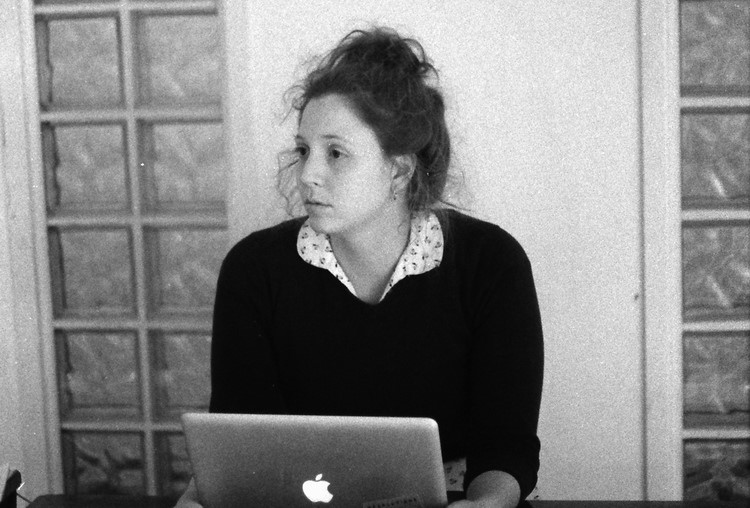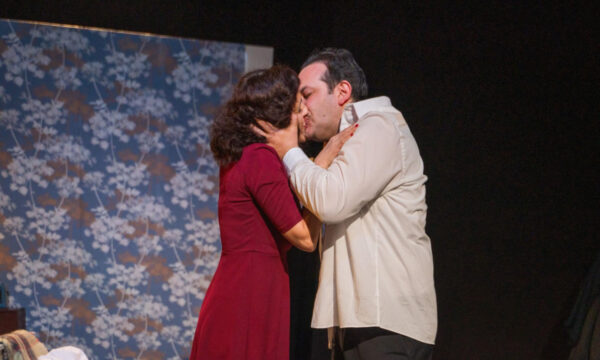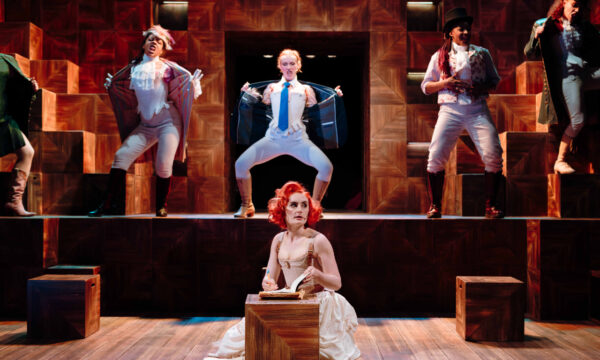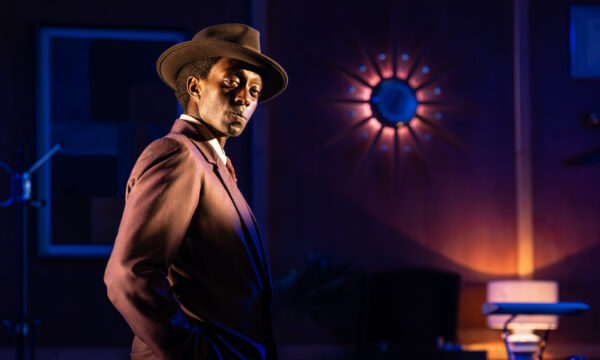Skin a Cat: An interview with playwright Isley Lynn

Isley Lynn’s award-winning play, Skin a Cat, has transferred to a new underground theatre in London Bridge following a sold-out run at VAULT Festival earlier this year. The playwright’s previous works have been staged at the Royal Court, the Gate and Arcola Theatre and her debut play Lean had an extended run at the Tristan Bates Theatre in 2013. Skin a Cat is a personal and ambitious story of sexual discovery and dysfunction, exploring the challenges and consequences of not having a “normal” sex life and the play speaks to our shared experiences with joy, candour and levity, making a difficult subject more accessible. The Upcoming caught up with Isley to chat about the semi-autobiographical nature of the play and the responses it has been getting from audiences.
Skin a Cat had a fantastic sell-out run at the Vaults, how is it moving into the Bunker? Will it fit into the space easily?
The Vaults were incredible and the Bunker is just as cool and we feel really lucky that we’re transferring to somewhere with the same thirst for risk and bravery that the Vault champions. It’s been a smooth transition because the space itself is so great, and there’s a lot of freedom to make it work for the show. The seating is so comfy too, which is a big bonus on the fringe.
It must be exciting being one of the first productions in the venue. Is there a lot of pressure?
Definitely. But mostly we’re excited to have the privilege of opening and all the extra attention that comes with that, plus the Vault Pick of the Year Award puts me at ease a bit, it means that we must be doing something right…
Skin a Cat is an exploration of sexual identity and awakening, is it an important topic to create art about? Does the discussion it generates benefit people?
It was important for me. I wish I’d seen something like this when I was a teenager (which is why I wrote the play) and we’ve had a massive response from people saying it’s important for them too, from couples struggling to get pregnant to LGBTQ+ people who navigate their own sexual expression, a real variety of people are finding themselves in the play’s subject of sexual “otherness”.
The show covers a broad time period, was casting Alana difficult because of this?
Not really – we just needed actors who were intelligent and creative (all three play characters from ages nine to their 50s) and we struck gold with Lydia Larson, Jessica Clark and Jassa Ahluwalia.
The play is semi-autobiographical, is it hard working with something that reflects your own life? How much of it is based on your own experiences?
All of my plays start with a seed of experience that I’ve either lived through or have access to somehow. This one is certainly the most personal but because I was clear about what the play was for and what its goal was I was able to serve that purpose rather than my own autobiography. It’s heavily fictionalised, but it all happened, sort of…
It must be quite a raw experience, where you more nervous about how an audience would react to something based on you?
Yes and no. On the one hand I knew this story should be told, that I could do something that might help others in telling it, and the importance of being completely honest – I truly believe that if you tell the truth then you’ll connect with people, and that’s exactly what’s happened. On the other hand, I was understandably nervous about people (like my parents) watching my sex life unfold before them, but when they said it was the best thing I’d written I had a little cry and felt invincible for the rest of the run.
When you first started putting this project together you did it with few resources, pulling in favours where necessary. Did you know even then that it would be a success?
You never know if anything is going to be a “success”, the only thing you can do is make work that you’ll be proud of on your deathbed. I’ve had four significant productions of my work and none of them have been a proper commission, but I’d rather get the work on than wait around for permission to tell the stories that are important to me. Thankfully I’ve found creative people as dedicated as I am to making good art happen by the skin of our teeth, but dammit if we’re not all rich and famous one day then there’s no justice in this industry.
As a female writer, do you think Alana’s sexual journey is specific to women? Is there much for a male audience?
Not at all – firstly, to assume that a play about a woman won’t be of interest to men is to hugely underestimate men. I don’t have to have personally gone to space to enjoy Apollo 13, so why should any non-biological woman not enjoy a play about people with vaginas? It makes no sense to me, it never has, and we need to give men more credit. Secondly, the play is about feeling different and weird and awkward and excited but unsure about sex and growing up, and I’m pretty sure those are universal themes whatever your genitals.
Why are plays that are so intimate, and which portray female sexuality, still seen as difficult? Did you find it a tricky subject to write about?
Well, we don’t have many of them around (though this is slowly changing) so we’re not used to engaging with them in the same way we’ve always engaged with stories about a male hero and their sexual drives. I think if we just had more of them audiences would get used to them and it wouldn’t be an issue. But honestly, if you treat it like any other subject you’d write a play about then it’s just the same. It comes back to telling the truth – it’s that simple, that easy, and that frightening, but so so worth it.
As an American-born playwright what drew you to London?
I actually moved to England when I was four years old and have both a UK and USA passport, so I wasn’t “drawn” as such, but we’ve stayed here because, in my parents’ words, in the USA there’s a greater quantity of life but in the UK there’s a greater quality of life. Part of that is being so close to Europe (RIP EU) and part of it is the much lower likelihood of getting shot. Plus the theatre scene’s pretty good…
Molly Lempriere
Photo: Tex Bishop
Skin a Cat is at the Bunker from 12th October until 5th November 2016, for further information or to book visit here.
Watch the trailer for Skin a Cat here:





















Facebook
Twitter
Instagram
YouTube
RSS